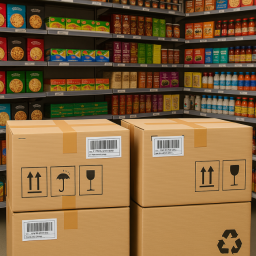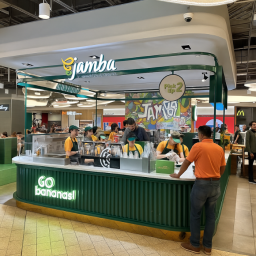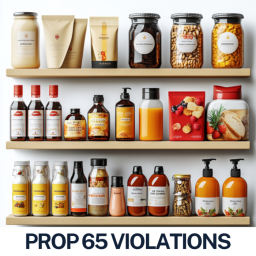
If you tossed a bag of cashews into your cart during your last Costco run, you might not realize the global scale of that purchase. A recent Yahoo News report revealed that Costco sells 50% of the world’s cashews, an incredible statistic that shows just how much sway the retailer has in shaping markets, prices, and farming practices.
For consumer-packaged goods (CPG) companies, this story about cashews is more than trivia. It illustrates the opportunities and challenges of working with Costco, a retailer that can transform a brand overnight, but also one that imposes strict demands. At Juris Law Group, we’ve guided clients through these exact dynamics when selling through Costco.
Why does Costco dominate the cashew market?
Several factors explain Costco’s unusual grip on cashews:
Competitive pricing: Costco sells cashews at about $6.40 per pound, compared to nearly $14 per pound for Planters at Walmart. This makes Costco the clear price leader.
Private-label strength: Like other Kirkland Signature products, Costco’s black-label cashews are marketed as high quality at lower prices.
Direct farmer relationships: Costco doesn’t just source from middlemen; it invests in farming infrastructure, from processing facilities to school programs, creating stable long-term supply chains.
In short, Costco isn’t simply selling nuts; it’s reshaping global production and access.
What does this mean for farmers and vendors?
Costco’s market dominance has ripple effects across the supply chain:
Farmers gain investment but lose flexibility: Direct partnerships can provide long-term security but often tie farmers closely to Costco’s terms.
Brands face volume and compliance pressure: To meet Costco’s demands, vendors must scale quickly while staying compliant with FDA, USDA, and state specific labeling rules.
Competitors are squeezed: Costco’s pricing power makes it hard for other retailers and vendors to compete on margin.
For cashews, this has meant stability for farmers but limited pricing freedom. For CPG brands more broadly, the lesson is clear: Costco partnerships are high-reward but high-stakes.
How Juris Law Group helps clients working with Costco
Our experience supporting clients who sell through Costco has shown that success depends on preparation and foresight. Over the years, we’ve negotiated thousands of vendor and co-packing agreements with major retailers including Costco, Walmart, and Trader Joe’s; helping brands strike a balance between growth and protection.
Some of the most common ways we help include:
Negotiating vendor and co-packing agreements
We’ve worked on deals ranging from profit-sharing co-manufacturing contracts to exclusive private-label arrangements. For example, we’ve helped brands avoid one-sided terms that could limit their ability to expand outside Costco.
Anticipating compliance challenges
Cashews may look simple on a shelf, but packaging still triggers complex requirements, FDA allergen labeling, Prop 65 warnings in California, and now “Best By” date rules in several states. We’ve guided clients through these pitfalls before products ever hit Costco’s floor.
Protecting marketing claims
Selling through Costco means national exposure. We regularly review “healthy,” “organic,” or “sustainably sourced” claims to ensure they’re backed by evidence, preventing lawsuits or FTC action down the road.
Supporting long-term brand growth
Beyond single contracts, we help vendors think ahead: drafting licensing deals, advising on influencer partnerships, and structuring supply chain strategies so that Costco becomes a platform for growth rather than a single point of dependency.
In short, we don’t just put out fires, we help vendors anticipate risks before they become problems.
Why this cashew story matters for all CPG brands
The fact that Costco sells half the world’s cashews is about more than nuts. It’s about what happens when one retailer holds extraordinary power in a global supply chain. For farmers, it means stability with strings attached. For vendors, it means enormous opportunity alongside heavy compliance and contractual obligations.
And for start-up CPG companies, it’s a reminder: securing a Costco deal can be transformative, but only if you’re legally and operationally prepared to handle the scale.
FAQs
Why does Costco sell cashews so cheaply?
Because of bulk buying, private-label pricing, and direct farmer partnerships that cut out middlemen.
What risks do vendors face in Costco deals?
Volume commitments, exclusivity clauses, labeling errors, and unsubstantiated marketing claims.
Does Costco always require exclusivity?
Not always, but exclusivity provisions are common in vendor contracts and must be negotiated carefully.
How can legal counsel help vendors succeed at Costco?
By drafting balanced contracts, ensuring compliance, protecting marketing claims, and planning long-term brand growth.
Final Takeaway
Costco’s dominance in cashews is just one example of how its buying power shapes industries. For vendors, the lesson is simple: Costco can open doors, but it also raises the stakes. At Juris Law Group, we’ve helped clients seize these opportunities while building the legal safeguards needed to thrive under Costco’s exacting standards.




